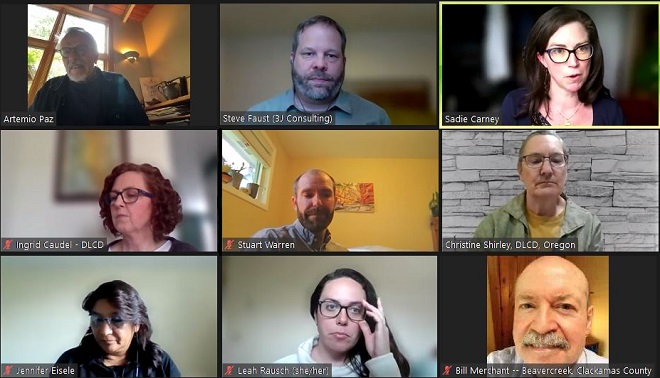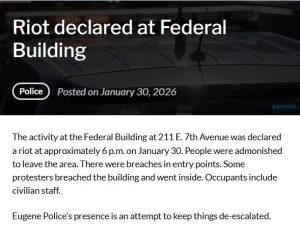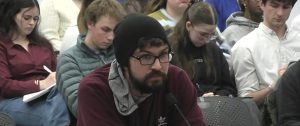U of O professor, Eugene planners nominated for Achievement in Citizen Engagement
5 min read
A U of O professor’s democratic innovation helped a City planning team, as they seek an Achievement in Citizen Engagement (ACE) award. At the Citizen Involvement Advisory Committee April 29, Artemio Paz.
[00:00:11] CIAC Member Artemio Paz: On the ACE awards analysis—the City of Eugene—a professor from the University of Oregon was collaborating on their low-cost housing analysis. He made a reference to a planner that talks about democratic innovation in planning. It seems to me that that democratic innovation was really all about transparency and understanding of the planning process in a way that it had relevance for the people that were being engaged.
[00:00:50] When I think of planning—as an architect that has worked more than four decades in the state of Oregon—it’s a heavy lift. And then when the planners talk about state and local regulations that govern this, it’s overwhelming. It’s a tremendously heavy lift.
[00:01:12] One thing that I found that helps to demystify planning and architecture in the real world is three-dimensional modeling. If you have that ability, then you can model the site specifics, the dimensions, you can model the permitted allowable building footprint, and you can model the three-dimensionality in a community.
[00:01:40] I think that the professor who was a consultant for the Eugene team really articulated that democratic innovation. Again, I would say that if you want to demystify some of this process, we have to get three-dimensional modeling as a part of the articulation of what these planning ordinances create, so that people see it visually. And then, at almost a visceral level, begin to respond to how they shape the buildup of their community and meet the requirements for all people in their community.
[00:02:22] John Q: Jena Hughes praised the outreach effort in Salem.
[00:02:25] CIAC Member Jena Hughes: I think for me, the standout was Salem. They included video clips so it was a little bit easier to tell visually of like what the impact was, but I was especially really impressed with their culturally specific engagements, particularly with the Spanish-speaking community.
[00:02:44] I just thought that was really cool how they had like a cultural, like, music performance. And so it made it more of a cultural event as opposed to, you know, planning open houses are usually really boring and it’s hard to get people engaged or excited. But you know, music is a really great way to get people excited. And they connected it to Dia de los Muertos, so it seemed very just like intentional and culturally specific.
[00:03:12] So I thought that was really innovative and exciting, but so that’s why it stood out to me. And also their youth engagement. Youth are often ignored or left out of the conversation, and it was just great to hear directly from youth in those videos, what it meant to be included.
[00:03:29] CIAC Member Artemio Paz: I was probably most impressed with the Clackamas County proposal for a couple of reasons.
[00:03:36] All of the proposals were intentional about the outreach to folks that normally aren’t participants and the planning decision-making process, but the outreach to multicultural communities, when I heard Russian, Vietnamese, Chinese, and Latinos being assessed and qualitatively recording the fact that the Russians were expressing a need for a collective, more open kind of relationship, that’s a very, very nuanced kind of commentary. And I think that that’s the kind of feedback that planners as a whole do not record. And I think that that’s very important for planning and democratizing the public domain.
[00:04:36] I like the fact that their intentionality implemented a two-step process. So they went after people early on, but then they came back to them to validate: ‘Did we hear you clearly? And are we doing this thing correctly?’ That to me talks about a certain kind of relevance and sincerity and purposeness, intentional direction, that really listens to the public and the feedback from a diverse audience that makes up the community.
00:05:15] John Q: The committee voted to recommend Salem, Eugene, and Clackamas County for awards.
[00:05:20] During the public comment period, a question from Friendly Area Neighbor Pam Wooddell.
[00:05:25] Pam Wooddell (Friendly Area Neighbors): I was wondering about, is there sort of a checklist or something just to assure—How do you measure when you’re done, you know, did you hit the newspapers? Did you do TV? I mean, how does the Citizen Involvement Committee decide when they’ve done sufficient outreach, at what point?
[00:05:42] Barbara Fryer: That’s a very good question Pam. (Yeah.)
[00:05:48] CIAC Chair Steve Faust: You know, you need to think about things both quantitatively and qualitatively because sometimes you do all the right things and you just don’t get the participation you would hope for, but making the effort is very important.
[00:05:58] We do have something that CIC put together a few years back. It was a starting point, kind of a checklist of saying, ‘Are we doing some of the basic things to make sure that we have an open and inclusive process?’ And then we mentioned ‘Putting the People In Planning‘ goes into much more depth on a lot of these issues.
[00:06:15] Do any of our committee members want to comment on this. Stuart?
[00:06:24] Land Conservation and Development Commissioner Stuart Warren: I don’t think you’re ever done with community engagement.
[00:06:27] Even when you adopt something, you should be revisiting with your community to check in, to see how the process went. And then a year down the road, check back in to see, how are the results working for us? What is the community feeling about the update to the zoning codes? So I don’t think that there is an end and so that’s what makes this whole process in-depth and tough, right? Because it just, there’s not an end. There’s no easy answer. It just takes time and effort.
[00:06:54] John Q: Southeast Neighbor Leah Rausch was elected chair of the advisory committee.
[00:06:58] Steve Faust: A motion to approve Leah Rausch as the CIAC chair, to be officially voted in at the July meeting. All those in favor, please raise your hand. I think it looks unanimous.
[00:07:11] John Q: Congratulations to the City and University planning team and Southeast Neighbor Leah Rausch, the next chair of the Citizen Involvement Advisory Committee.




